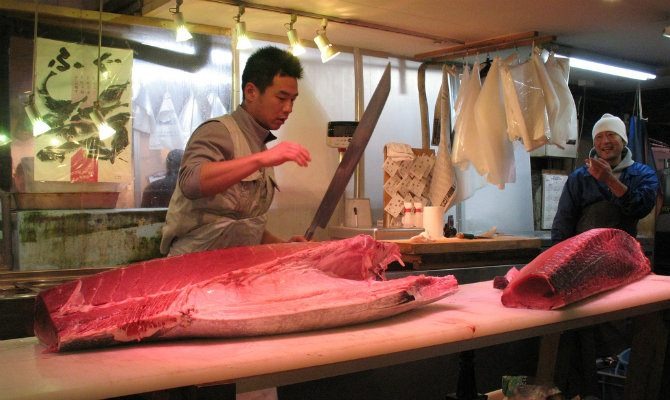Japan's Seafood Exports Grow As Japanese Increasingly Choose Meat Over Fish
Despite an overall increase in the global demand for fish, Japan's own $11.6 billion seafood industry is forced to look to other countries for customers, as the once ocean-centric nation continues to develop a taste for meat, like beef and pork.
Over the past decade, Japanese demand for seafood has fallen 20 percent, while imports have risen 30 percent in the first half of 2015 alone, according to Bloomberg. The import industry has also been boosted by a weaker yen, which makes Japanese products cheaper than those of its competitors.
And while the rest of the world is seeking Japan's covetable seafood — perhaps brought to the attention of many through Jiro Dreams of Sushi and the breathless praise for Japanese cuisine by Anthony Bourdain and other food celebrities — the Japanese themselves have become interested in new proteins. This year, meat consumption in Japan has exceeded that of fish for the first time since 2006, and the country has become the world's largest importer of pork.
In order to tap into an international market, Japan's largest air carrier, ANA, has introduced more cargo flights. "We can offer fish we catch in the morning to buyers in the afternoon of the same day," fisherman Shigeru Koike told Bloomberg. "That's our selling point. If we can catch more, and our cooperative managers sell more fish to overseas, that will be great."
